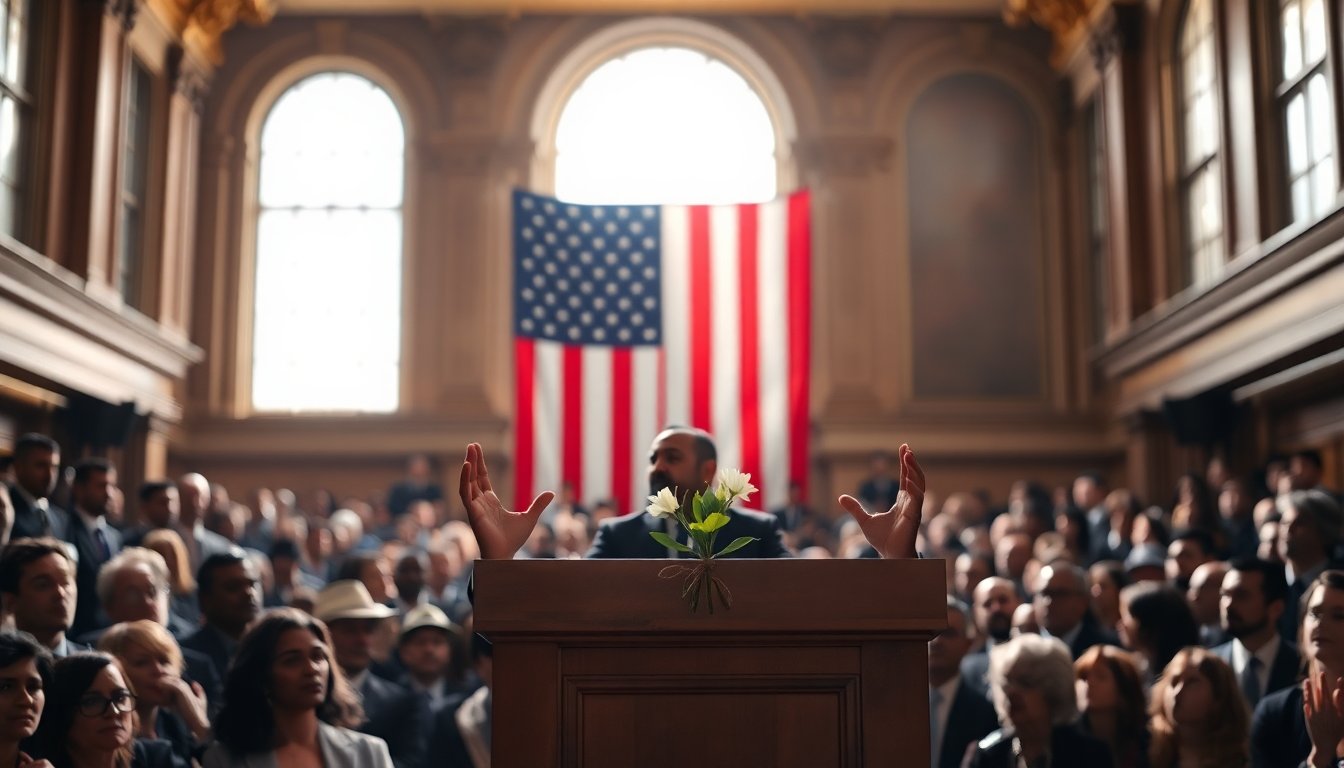Table of Contents
Zohran Mamdani’s recent victory speech as the new mayor of New York City signals a potentially transformative chapter for the metropolis. However, it also raises concerns about a possible conflict with President Trump. During his address, Mamdani urged Trump to pay closer attention to the criticisms directed at his administration. This pointed rhetoric was anticipated, particularly since Trump has previously described Mamdani as a “100% Communist Lunatic,” reflecting a significant rift between them.
Adding to the tension, Trump reiterated threats to cut federal funding to the city if Mamdani took office. This ongoing feud highlights the complexities of political relationships that can considerably impact urban governance and the lives of residents. The federal government plays a crucial role in financing city initiatives, with New York City depending on approximately $7.4 billion from federal sources as part of its overall $115 billion budget for the current fiscal year.
Federal influence and city governance
The federal government’s importance cannot be overstated, especially in funding essential programs. For example, New York’s Department of Housing Preservation & Development, responsible for maintaining affordable housing, receives nearly 50% of its budget from federal allocations. Thus, any threats to withdraw funding could significantly affect the city’s ability to serve its residents.
Legal implications of funding threats
Some analysts question whether Trump has the legal authority to implement such funding cuts unilaterally. The Constitution assigns the responsibility for federal spending to Congress, not the executive branch. This raises critical discussions regarding the balance of power and the consequences of withholding financial support from urban areas. Nevertheless, Trump’s administration has shown a readiness to use various tactics, such as deploying National Guard troops or ICE agents, to assert federal control over local issues.
Some experts contend that immigration enforcement is particularly significant in this context, as it falls within the federal government’s jurisdiction. Mamdani’s election could complicate these dynamics further, especially since cities like Chicago and Los Angeles have faced similar confrontations with the Trump administration.
Engaging with urban leaders
Despite the strained relationship, there have been instances where Trump softened his stance after direct discussions with city leaders. For instance, following talks with the mayor of San Francisco, the president rescinded plans to send additional federal agents to the city. This indicates the potential for negotiation, implying that mayors, including Mamdani, need not always adopt a confrontational stance.
Strategic approaches for mayors
Experts suggest that mayors can choose to either seek cooperation with the federal government or challenge its authority directly. Each approach has its advantages and disadvantages. John Mollenkopf, a political science professor, notes that influential economic elites in Democratic cities might moderate Trump’s more extreme actions. If these elites can convince the president of the impracticality of cutting funding, it could lead to a shift in his policies.
As Mamdani’s administration begins, he will need to navigate these complex political waters carefully. His recent victory was marked by a call for hope and change, resonating especially with younger voters. This demographic, which values authenticity and progressive ideals, may play a crucial role in shaping his political strategy moving forward.
Future implications
The outcome of Mamdani’s election may set a precedent for how progressive platforms can reshape urban politics amidst federal pushback. As he embarks on his term, Mamdani aims to implement ambitious plans focused on affordable housing and social equity. His administration is prepared to champion initiatives that resonate with residents facing rising costs and inadequate housing.
In the days following his election, Mamdani’s tone appeared to shift slightly as he expressed a willingness to collaborate. Reports indicate that during a recent event, Trump mentioned, “We want New York to be successful. We’ll help him. A little bit, maybe.” This suggests that while challenges lie ahead, there may still be opportunities for cooperation between Mamdani’s administration and the federal government.


